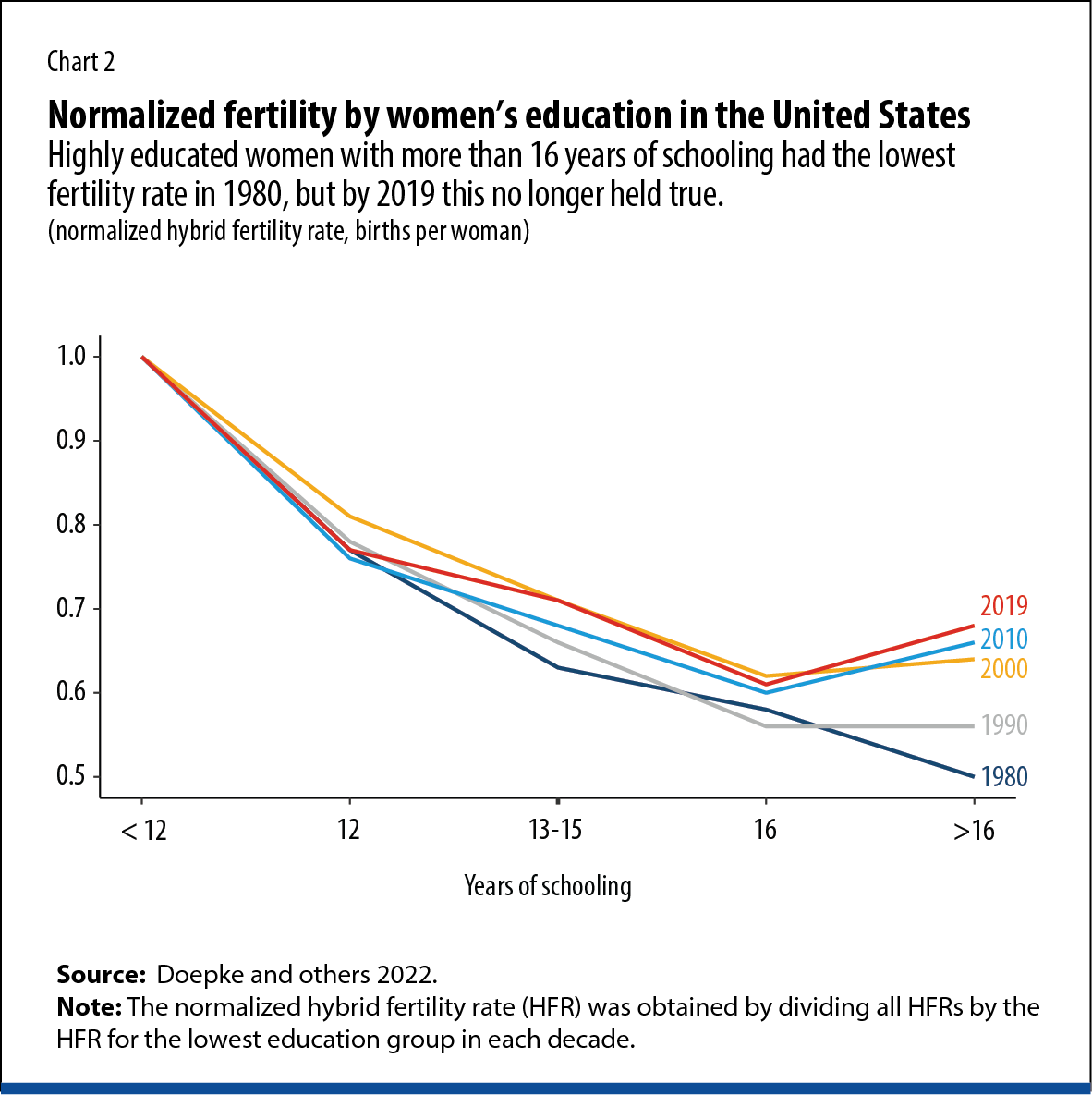Wealth, fertility and adaptive behaviour in industrial populations
In decreasing order of strength, fertility (TFR) correlates negatively with education, CPR, and GDP per capita, and positively with religiosity. Europe deviates from other regions in several ways, e.g. TFR increases with education and decreases with religiosity in W Europe. TFR decreases with increasing strength of family planning programs in three regions, but only weakly so in a fourth, Sub-Saharan Africa (the two European regions lacked such programs). Most factors correlated with TFR are also correlated with each other. In particular, education correlates positively with GDP per capita but negatively with religiosity, which is also negatively related to contraception and GDP per capita.
https://bmcpublichealth.biomedcentral.com/articles/10.1186/s12889-020-8331-7
People and economies will prosper if policymakers help women combine career and family
Economists have proposed two main explanations.
The first is known as the quantity-quality trade-off. It suggests that as parents get richer, they invest more in the “quality” (for example, education) of their children. This investment is costly, so parents choose to have fewer children as incomes rise. Historically fertility and GDP per capita are strongly negatively related, both across countries and over time.
The second explanation acknowledges how time-consuming it is to raise children. As wages increase, devoting time to childcare—time that could otherwise be spent working—becomes more costly for parents, and especially for mothers. The result is a decline in fertility and greater female labor force participation. There is in fact historically a strong negative association between female labor force participation and fertility over time and across countries.
New fertility facts
The data show that these relationships are no longer universally true.
https://www.ncbi.nlm.nih.gov/pmc/articles/PMC4822433/
Then we have China...

